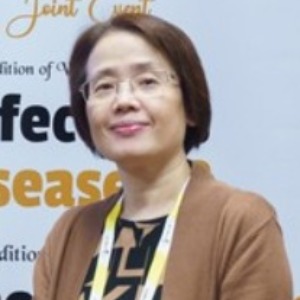Title : Commensal bacteria drive B-cell lymphomagenesis in the setting of innate immunodeficiency
Abstract:
Myeloid cells are central players in innate immunity and inflammation. Their function is regulated by the adaptor protein TRAF3. We previously reported that aging myeloid cell-specific TRAF3-deficient (M-Traf3-/-) mice spontaneously develop chronic inflammation and B-cell lymphoma. Here we aimed to identify the internal trigger of this disease phenotype in these mice. We first detected gut microbiota dysbiosis and transmigration of commensal bacteria to the liver in aging M-Traf3-/- mice. Interestingly, depletion of commensal bacteria using antibiotics effectively prevented B-cell lymphoma development in these mice. Systemic IgG responses against commensal bacteria were induced and the IgH CDR3 sequences of malignant B-cell clones of M-Traf3-/- mice showed high homology to prevalent bacteria-reactive Ig clonotypes. Furthermore, M-Traf3-/- mice with B-cell lymphomas exhibited high serum titers of antibodies against commensal bacteria. Together, our findings offer insights into the mechanisms underlying increased risks of B-cell lymphomagenesis observed in patients with compromised innate immunity



